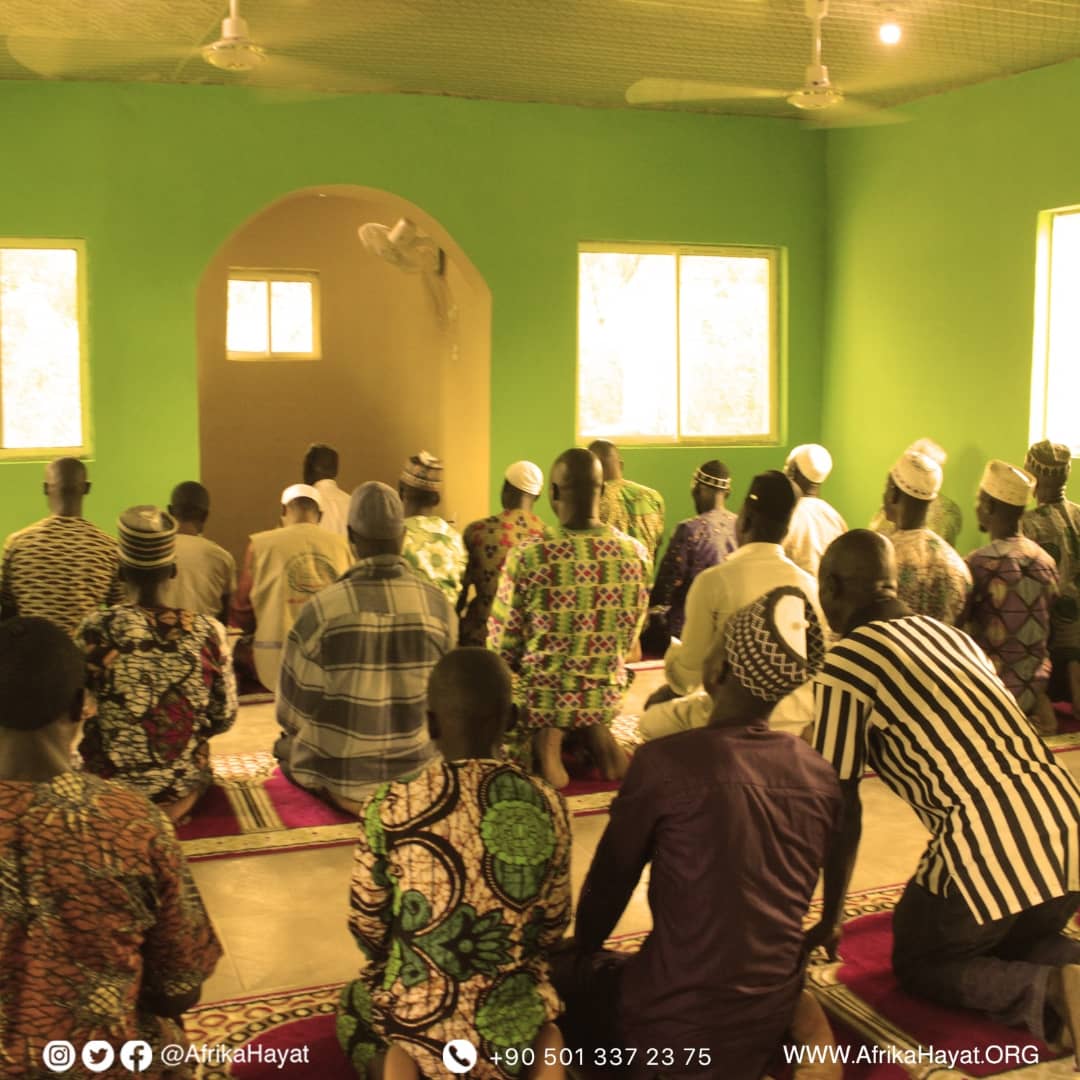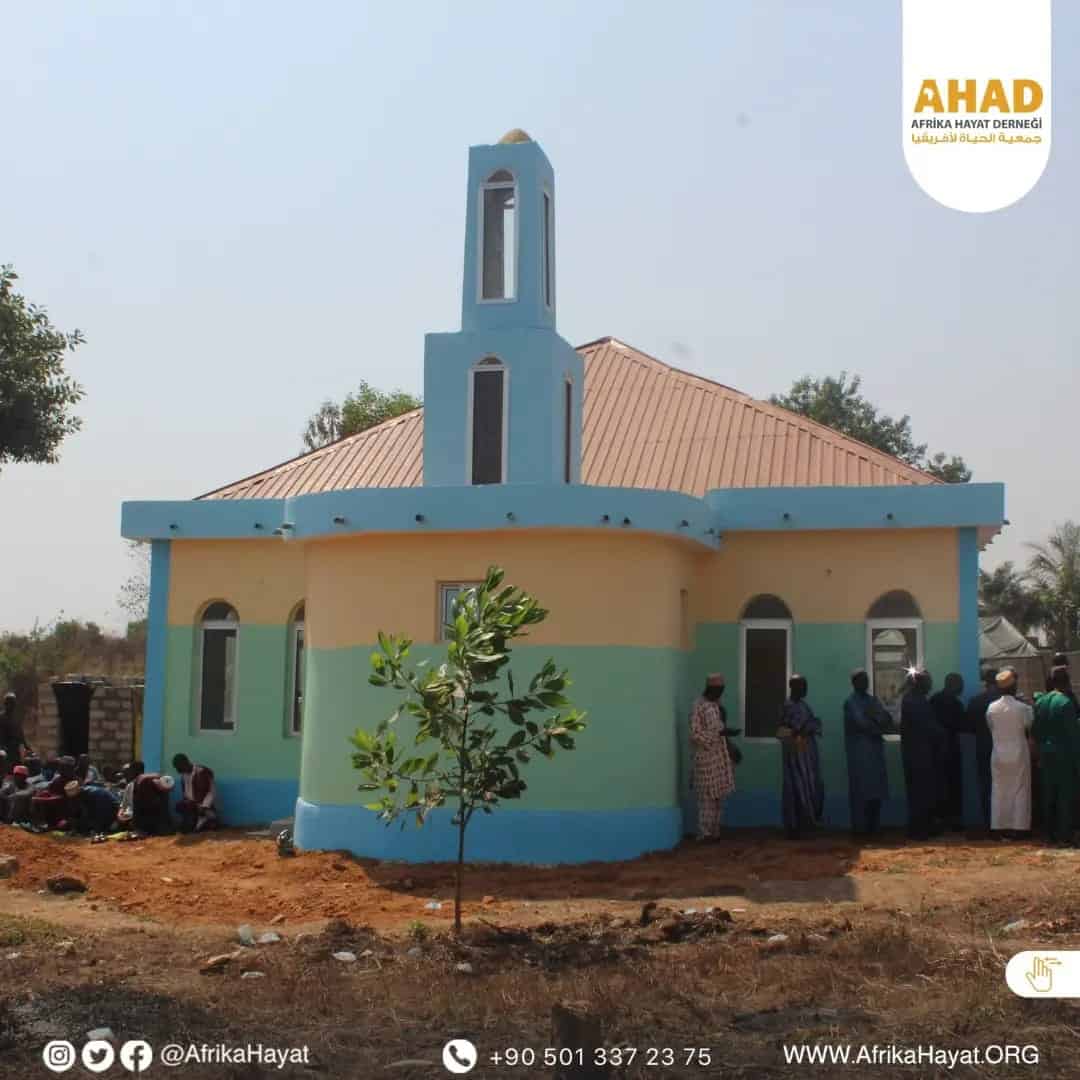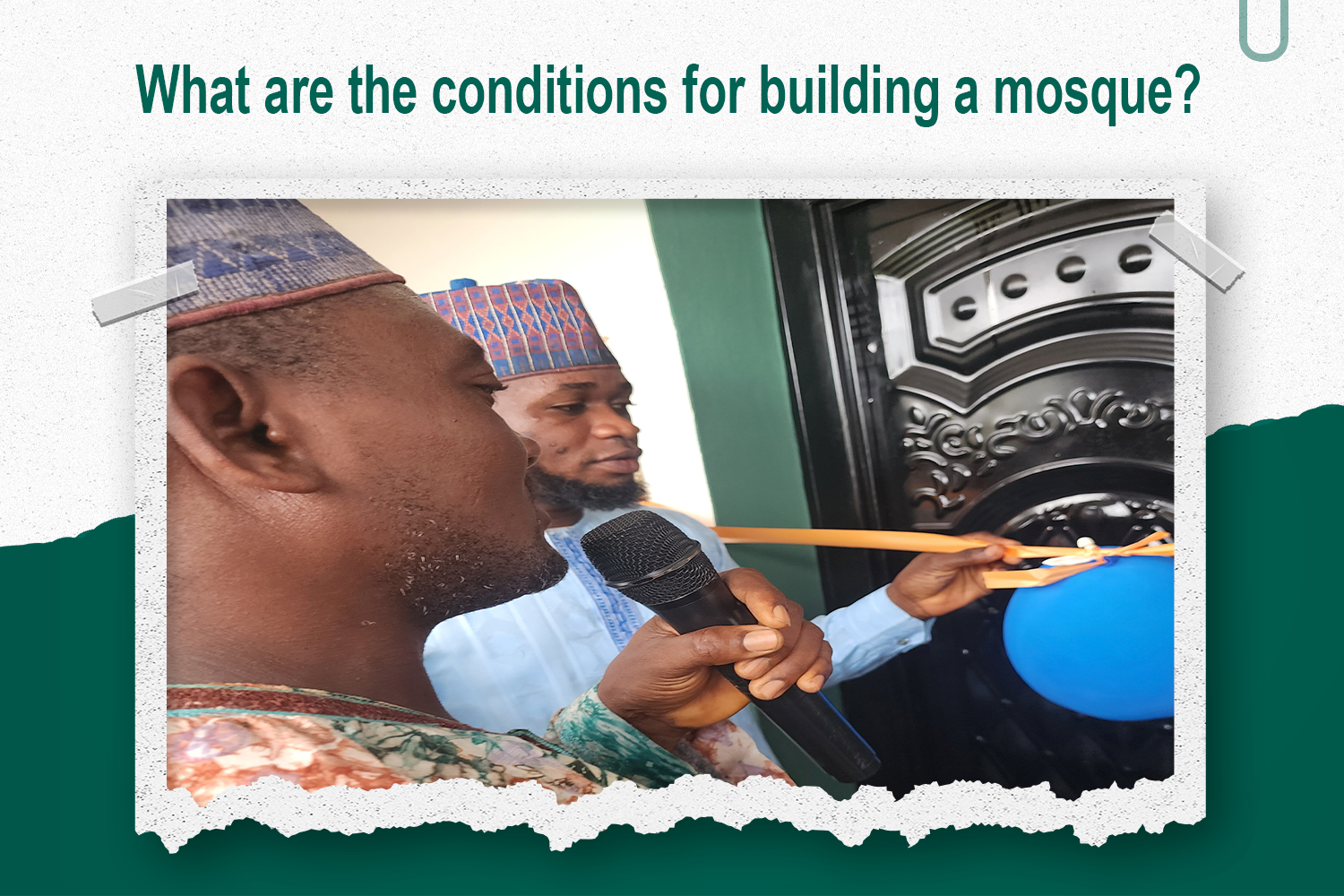What are the conditions for building a mosque
Sanctification of mosques in Islam: status and sanctity
In Islam, mosques hold a special place with Allah, they are places of honor for worship and closeness to Allah. God made it a synagogue for people to establish prayer and remembrance, and to achieve closeness to him.
Mosques are distinguished by their sanctity and holiness, and people are directed to them from all corners of the Earth Towards the sacred house of Allah, which is the mosque that Allah has made a place for all believers. Mosques require purity that does not accept cruelty and pollution, and they must take care to establish Islamic law from the very beginning.
Honoring mosques and preserving their sanctity comes from Islam’s keenness to preserve their sanctity, as the Grand Mosque remains a kiss for Muslims, and visiting it is considered a great place. Therefore, all mosques must be built with the structure of legitimate residence, and be a center of piety, remembrance and worship.
Conditions for the construction of mosques in Islam
In Islam, the construction of mosques must be in clean places, free from defilement, impurity and taboos, and it is not permissible to build them on usurped lands or in areas contaminated with discounts. One of the parties to the conflict may donate land for the construction of a mosque to calm the situation, or the land can be taken as cash to preserve the face of modesty.
Suitable sites should be chosen for the construction of mosques, as all residents of the neighborhood benefit from them, and the construction of mosques should be avoided on the outskirts of urbanism. The mosque should also be surrounded by a good and clean place, and any sources of dirt should be avoided near it.
Historical examples show how sites were selected and cleaned before the construction of mosques, where the Prophet (peace and blessings of Allaah be upon him) cleaned the site and cleared it of defects and vegetation before the construction of the mosque. The location chosen by the Prophet (peace and blessings of Allaah be upon him) in the city reflected his keenness for purity and cleanliness.
It is not permissible to build mosques on the graves of the prophets or the righteous, in order to preserve their sanctity and avoid deviations. The Prophet (peace and blessings of Allaah be upon him) forbade this, stating that cemeteries should not be a place of worship.
Another of the controls for the construction of mosques is not to use polluted or unclean places for their construction, as stated in the Hadith of Aisha, may Allah be pleased with her, which warns against the use of cemeteries for the construction of mosques.
The construction of mosques should be a pure work of Allah, and all necessary precautions should be taken to ensure their inviolability and purity.

The etiquette of building mosques in Islam
The construction of mosques in Islam requires respect and observance of some important morals and principles, including these morals:
Firstly: sincerity and seeking Allah’s pleasure in building a mosque, as the main goal of building a mosque should be to achieve piety, as stated in the Holy Quran.
Secondly, it should be avoided to build a mosque on a grave or use it as a burial place, in order to preserve its sanctity and respect for the grave, as the mosque should be a place of worship and not for burial.
Third: exaggerated decoration and extravagance should be avoided in the construction of the mosque, as the construction should be simple and practical according to local need and without exaggerating the cost.
Fourth: there is no objection to building a mihrab in the mosque as a place for the imam and offering prayers, and it should be explained appropriately inside the mosque.
Fifth: it is preferable that the pulpit of the mosque consists of three grades, as was the pulpit of the Prophet (peace and blessings of Allaah be upon him), and if there is an interest in increasing the number of grades, there is nothing wrong with that.
Research before building a mosque: ensuring proper planning
Before any mosque construction project starts, a thorough research should be carried out to determine the appropriate location and analyze local needs. This research includes several important aspects:
A location that meets the needs of the local community should be chosen that is central and accessible to worshipers. The site should be free from possible defects such as flooding or difficult terrain.
The religious and social needs and requirements of the local community should be understood. This includes the number of expected worshippers, their space needs and additional services such as Islamic schools and cultural centers.
Scientists, religious leaders and members of the local community should be involved in the decision-making process regarding the construction. Their opinions and needs should be included in the planning and design.
The opportunities available for the construction of the mosque should be studied in addition to possible challenges such as legislative, financial or environmental restrictions.
There should be a mechanism for continuous communication with the local community and the relevant authorities during the mosque construction process to ensure that needs are met and any potential problems are avoided.
The process of building a mosque should be based on careful and participatory consideration to ensure that the religious and social needs of the local community are optimally met.

Securing funding for the construction of the mosque
It requires multiple steps:
Local fundraising
The project is promoted, donations are collected from individuals and the local community, donation campaigns can be organized to support construction costs.
Cooperation with international bodies
It is possible to communicate with international organizations and charitable bodies that provide financial support for mosque construction projects, negotiate for additional funding.
Cooperation with charitable institutions
Local and international charities are contacted for financial support for the project, offers and requests for funding can be submitted.
Government funding
In some cases, financial support can be obtained from the local government or other government agencies, by requesting funding and approving the project.
Private financing
Sometimes private financing can be taken advantage of by individuals or companies wishing to support religious construction projects.
Design for the construction of the mosque
At the design stage of the construction of the mosque, cooperation is carried out with specialized architects to ensure a design commensurate with Islamic architectural origins and in line with local environmental and cultural conditions. This work includes:
Architects work with scholars and experts in the field of Islamic architecture to ensure a design that conforms to Islamic standards and principles.
The appropriate Islamic architectural standards are applied in the design of the mosque, such as the directions of the Qibla and the organization of internal and external spaces and fittings in a way that reflects the Islamic heritage.
The mosque is designed in such a way as to provide environmental sustainability, improve air and light quality, and effectively use resources.
Local customs and traditions are taken into account in the design of the mosque, which helps to create a place in harmony with the social and cultural environment of the local community.
The latest technologies in the field of construction are used to ensure safety, quality and efficiency in the process of building a mosque.
Completion of the construction of the mosque and its preparation for the opening
After obtaining the necessary funding and confirming the legal formalities, the mosque construction project begins and is completed in sequential steps:
Construction and construction
The construction and construction process is started using experienced contractors, and the construction process is closely monitored to ensure quality and compliance with the required standards.
Decoration and fittings
The necessary equipment is added to the mosque such as furniture, religious equipment and lighting, taking care of an aesthetic interior and exterior design that reflects the Islamic identity and local culture.
Opening and commissioning
After the completion of construction and equipment, an opening ceremony of the mosque is organized in the presence of members of the local community and local officials. An administrative committee is also being formed to manage the mosque and provide religious and social services to the local community.
What are the conditions for building a mosque
Charity work and donations with Ahad humanitarian association
Philanthropy is a fundamental pillar in building interdependent and solidarity-based societies, where it promotes social cooperation and brings well-being to all. By supporting people in need, we encourage cooperation and build bridges of solidarity, thereby strengthening the positive spirit in society.
Charity work has a positive impact not only on society, but also casts its impact on our personal life, as it gives us happiness and satisfaction. For me, donating to the poor through AHAD humanitarian association is an expression of the values of giving and dedication, and gives me pride and reassurance that I am part of improving the lives of others.
AHAD humanitarian society stands out for its diverse efforts in serving people, as it works to achieve comprehensive development through its various projects. Its efforts range from the construction of wells to provide clean water to the distribution of livestock to improve the livelihood of families, up to the support of education and health care. AHAD society works hard to achieve a positive impact in people’s lives.
You can visit the ahad Association website to find out more about the projects it offers
Related articles:
The importance and bounty of the month of Ramadan
Join us in our message by donating




